
If it seems like you’ve been seeing more reports about shark attacks lately, it’s not your imagination. Shark attacks are on the rise worldwide. One of the most common locations is Long Island, New York, which may shatter its record of eight shark bites in one year in 2022; this year so far there have been five. Although experts urge people not to panic—statistically, you’re 21 times more likely to die in a tornado than from a shark bite—they point to seven reasons why sharks are getting closer to humans in the water.
1
Large Groups of Humans in On Area Draw Sharks
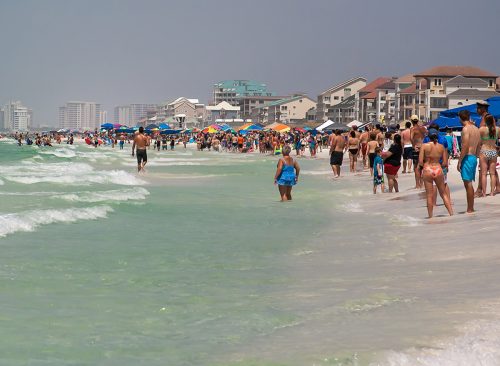
“When you have more people utilizing a specific area, and you have sharks in that area, you’re increasing the probability that something’s going to happen,” Ralph Collier, director of the Shark Research Institute’s Global Shark Attack File, told the Telegraph. More sharks getting close to more humans “never works out well for us,” he said.
2
Overfishing

One theory behind the increase in attacks is that fishing has depleted sharks’ main source of food, so they’re swimming into warmer, shallower waters in search of a meal. “They don’t have an adequate supply of prey anymore,” Collier said. “Fish stocks are down. So the sharks naturally go to the place where they can find their food, which is close to shore because that’s where the reefs [which are protected from fishing] are.”
3
Climate Change
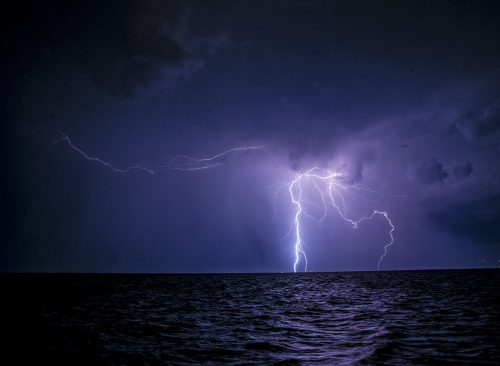
Aside from an outright shortage, rising ocean temperatures may be changing where sharks’ prey tend to congregate. Sharks then change where they travel to ensure they stay fed. “As we see warmer waters, we’re seeing marine species expand their ranges [and] shifting their ranges,” James Sulikowski, a marine biologist at Arizona State University, told ABC News.
4
They Like Cooler Water
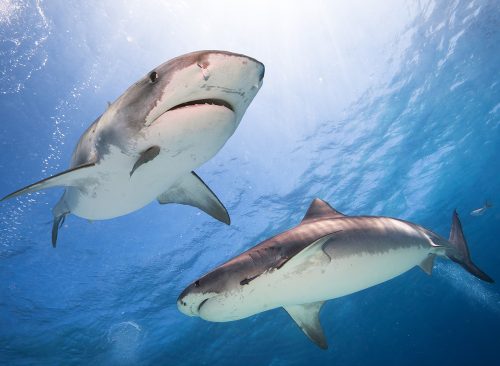
Sharks tend to prefer cooler waters, so they may be traveling farther north earlier in the year in search of more desirable temperatures. On the West Coast, juvenile great white sharks are increasingly moving north as the waters of the Pacific Ocean warm, a study published in Nature Scientific Reports found.
5
Cleaner Water
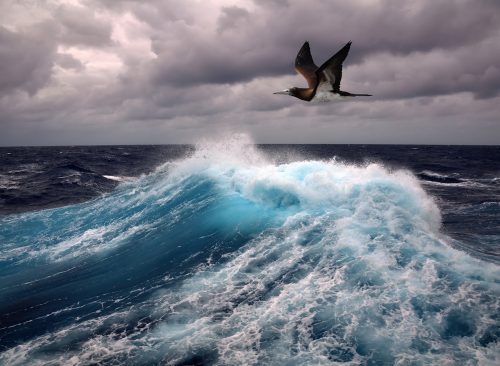
Efforts at cleaning up waterways—such as those near New York—have led to cleaner waters and a rebound in marine life that’s a source of food for sharks. Experts say there has been an increase in varieties of fish sharks like to feed on, and they may be swimming closer to shore in search of them.
6
Sharks Can’t See Well Close to Shore
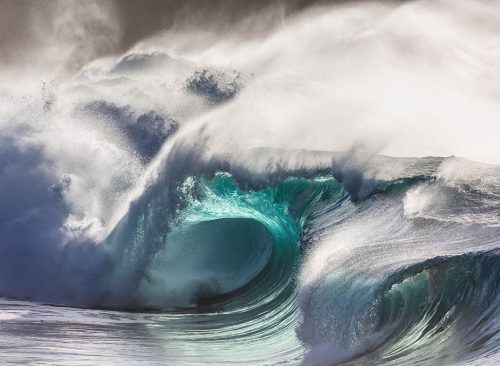
Another potential factor behind shark attacks occurring in the surf zone: The mixture of water and sand caused by breaking waves makes it difficult for the sharks to see, and they may mistake human hands and feet for fish, Gavin Naylor, director of the Florida Program for Shark Research at the Florida Natural Museum of History, told ABC News. About 60% of bites occur in low-visibility water.
7
More People Are Headed to the Beach

Rising temperatures are driving more people to the beach just as shark populations may be swimming closer to shore in search of food. “The country is warmer than it’s ever been. And that’s going to drive more people to the water than ever before, which just simply increases your probability of somebody getting accidentally bit,” Christopher Lowe, a professor of marine biology at California State University Long Beach, told CNN.














